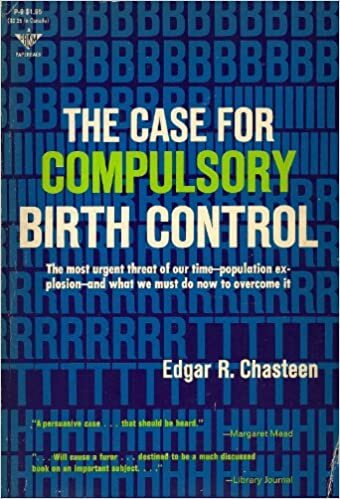The Lynn White Thesis and American Christianity
Lynn Townsend White, Jr’s essay, “The Historical Roots of Our Ecological Crisis” is the essay that launched a thousand ships in the study of religious environmentalism. That essay, originally delivered as a conference talk and popularized because of its publication in Science magazine, has been a touchstone of discussions of the connection between Christianity and environmentalism in in the more than fifty years since it has been published.
The problem with the essay is that it is largely wrong.
White’s basic argument is that Western Christianity devalues creation, promoting a dualistic framework that treats the physical world as merely existing for human benefit. White puts the blame on Christianity for de-paganizing the world because, he argues, Christian missionaries chopped down the sacred groves, taught the barbarians that there was one true God in spirit form, and that the Nyads and Dryads of their mythologies were false gods. The solution, according to White, is to adapt a more pagan conception of reality, viewing the world as sacred and adapting Christianity to a more nature-centric worship.
This thesis should have been debunked simply because it relies on a basic misunderstanding of Christianity. While theologians like Augustine do argue that there are differences between spiritual things and physical things, they do not indicate that on that basis physical things may be abused. There are certainly dualistic Christians who devalue creation and view it as solely existing for humanity’s benefit, however, their perspective in not consistent with Scripture. The solution is not to modify Christianity, but to present a robust theological orthodoxy that points dualistic Christians back to Scripture, back to the creeds, and back to the proper worship of the creator.
In the same year that White’s infamous essay was published, there was another volume that also should have undermined his thesis. Clarence Glacken published his seminal work, Traces on the Rhodian Shore, in 1967. In roughly 700 pages, he shows from ancient literature through roughly the present that the common human condition has been an anthropocentric view of nature. That is, the view that White ascribes to Christianity is prevalent throughout Western culture from the ancient philosophers through the current ones. While Glacken does not absolve Christianity from all guilt related to environmental abuse, he does demonstrate the White’s simply cause and solution are off base. Glacken’s main failure was publishing the anecdote to an essay in a tome. White’s thesis has more power because it is concise and blames the right out-group. Glacken’s work is devastating to that thesis, but is dense, carefully researched, and lengthy. Thus it is often footnoted, but much less likely to have been read and digested.
More recently, a more direct rebuttal of White’s thesis has been published. In 2016, historian Evan Berry’s book, Devoted to Nature, was released into the wild. He argues that, “American environmentalism is related to religion, not out of serendipitous resemblance but by way of historically demonstrable genealogical affinity with Christian theological tradition.” (2) Moreover, “Theologically rooted notions of salvation, redemption, and spiritual progress provided a context for Americans enthusiastic about the outdoors and established the horizons of possibility for the national environmental imagination.” (5)
This, of course, does not take us directly to “orthodox Christianity is great for the environment” because a large piece of Berry’s account is how the bones of American environmentalism align to progressive ideas with a significantly middle-class flavor. Therefore, there is a Christian tinge to much of American environmentalism that is, to paraphrase Rauschenbusch, about as orthodox as the interests of the environmental movement will allow.
Still, Berry’s book is helpful in that it exposes the reality that Christian per se is not the problem with the environmental movement. While the versions of Christianity that have been most active in preserving the environment are not always particularly Christian, there is hope that with some focused attention and proper hermeneutics, we can see a robust pro-environment theology that is consistently orthodox. At least, as an orthodox Christian who believes caring for the environment is important, I hope that is true.
For those struggling with the Lynn White thesis, Evan Berry’s book, Devoted to Nature provides a strong anecdote. It is a helpful entry into the history of environmentalism in the US. It carefully debunks some of the strongest anti-Christian tropes of the environmental movement. It also points readers toward a hopeful engagement with Christianity that may lead to them finding the gospel. This isn’t a book for everyone, but it is a particularly important book for those doing scholarship on religion and the environmental.





















There’s no reason to doubt that Jesus was nailed to the cross. Ultimately, I trust what Scripture says about Jesus’s crucifixion because I also trust what it says about his resurrection. And that’s what we should be celebrating this week.